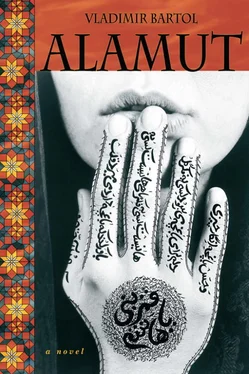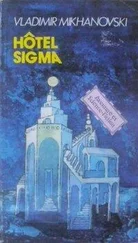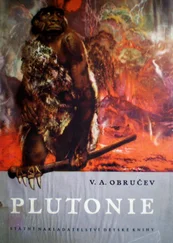Vladimir Bartol - Alamut
Здесь есть возможность читать онлайн «Vladimir Bartol - Alamut» весь текст электронной книги совершенно бесплатно (целиком полную версию без сокращений). В некоторых случаях можно слушать аудио, скачать через торрент в формате fb2 и присутствует краткое содержание. Город: Berkeley, Год выпуска: 2012, ISBN: 2012, Издательство: North Atlantic Books, Жанр: Историческая проза, на английском языке. Описание произведения, (предисловие) а так же отзывы посетителей доступны на портале библиотеки ЛибКат.
- Название:Alamut
- Автор:
- Издательство:North Atlantic Books
- Жанр:
- Год:2012
- Город:Berkeley
- ISBN:9781583946954
- Рейтинг книги:2.8 / 5. Голосов: 5
-
Избранное:Добавить в избранное
- Отзывы:
-
Ваша оценка:
- 60
- 1
- 2
- 3
- 4
- 5
Alamut: краткое содержание, описание и аннотация
Предлагаем к чтению аннотацию, описание, краткое содержание или предисловие (зависит от того, что написал сам автор книги «Alamut»). Если вы не нашли необходимую информацию о книге — напишите в комментариях, мы постараемся отыскать её.
Alamut — читать онлайн бесплатно полную книгу (весь текст) целиком
Ниже представлен текст книги, разбитый по страницам. Система сохранения места последней прочитанной страницы, позволяет с удобством читать онлайн бесплатно книгу «Alamut», без необходимости каждый раз заново искать на чём Вы остановились. Поставьте закладку, и сможете в любой момент перейти на страницу, на которой закончили чтение.
Интервал:
Закладка:
Abul Fazel scratched behind his ear.
“You know, ibn Sabbah,” he replied, “I’ve gotten old, and I’m no longer amazed by anything in the world. I’ve seen that something I thought was wise seven years ago has turned out to be stupid, and that apparent madness has proven to be the highest wisdom. There’s nothing I understand anymore, so I’ve given up making judgments. I’ve served my time.”
Hasan laughed again for the first time in ages.
“My dear reis, my dear reis!” he said. “Now you see what brittle legs were supporting the edifice you once thought had been built to last an eternity. All it took was a handful of men whom I could trust unconditionally, and I was able to cut down the Seljuk oak. Let me ask you: is there any other ruler or religious dignitary, prophet or wise man, any kingdom or institution that we here at Alamut ought to be afraid of?”
“No, there’s none, ibn Sabbah. Because your living daggers can reach anyone who crosses you. With weapons like that, who would want to be your enemy?”
“There are such people, dear friend. But the time will come when even princes on the far side of the world will live in fear of our power. And then we’ll collect tribute from all the emperors, kings and potentates beyond the seas.”
Abul Fazel only shook his head.
“I believe you, because I have to believe. But I don’t understand. How are you able to find youths who are so willing to sacrifice their lives at your command?”
“It’s because they know that death will immediately transport them to a place of heavenly delights.”
“Surely you don’t expect me to believe in your fairy tales about paradise?”
Hasan winked at him playfully.
“Would you like to convince yourself with your own senses that it exists?”
“Allah forbid I should be so curious!” he exclaimed. “Because you’re capable of anything, and if you finally did convince me that your paradise exists, I’d probably attack some sultan or vizier with a dagger, even despite these old bones and this gray beard.”
The leaders all laughed heartily.
The next morning Abul Fazel left Alamut, heavily laden with gifts and sitting comfortably on a camel’s back.
A week hadn’t yet passed when a messenger brought Hasan a letter from Barkiarok, in which he consented to the conditions. And lo and behold, Tekeshtegin proclaimed Barkiarok sultan in Rai. At that point both of them planned to move against Isfahan with their army, but Taj al-Mulk and his forces had already launched an assault against Sava. At Barugjir, between Hamadan and Harb, the armies collided. Taj al-Mulk was defeated. He was captured, and Barkiarok ordered him beheaded. Now the road to Isfahan was clear. He arrived outside the city at the beginning of the year one thousand and ninety three. Hasan, the second-born of the murdered grand vizier, arrived from Khorasan with his forces and joined him. Barkiarok appointed him to be his secretary. They welcomed a swelling tide of deserters from the camp of the sultan’s widow. Finally she had to negotiate with him and sue for peace. He even defeated and beheaded his uncle, Ismail ibn Yakuti, the regent of Azerbaijan who had sold out to Turkan Khatun. But he had barely done that when Ismail’s half-brother, Tutush of Damascus, rebelled against him. Tutush attacked Antioch and joined forces with the regent of Aleppo, Aksonkor. He occupied Mosul and demanded that the terrified caliph proclaim him sultan.
All of the outlying provinces of Iran were suddenly ablaze with rebellion. One after the other, the subjugated kings and princes proclaimed their sovereignty. Even the regents threw off the central authority of Isfahan, seeking complete independence. The conflicts between individual authorities worsened. An indescribable chaos that no one had experienced before came to dominate Iran. The poor caliph had to proclaim first one man sultan, then another, depending on the proximity and military might of a given pretender to the throne. Thus, there were months in Baghdad when the khutba had to be prayed for several sultans in a row.
This was the moment for Hasan to issue his final decree and to put the final touches on his edifice.
He assembled the leaders of all his fortresses at Alamut and invited his friends and adherents from far and wide.
It was a splendid winter day. Snow hadn’t yet fallen, except on the highest mountains. The chill air was dry and crisp. But as the sun rose over the peaks, it grew pleasantly warmer.
Very early, while it was still pitch dark, the drums had sounded, rousing the men from their sleep. Everyone—soldiers, fedayeen, the faithful and the leaders—dressed in their ceremonial clothes. Word went around that important and far-reaching events would take place at Alamut that very day.
After the first prayer, the leaders and their guests assembled in the great hall. They took their places all around the hall on divans covered with pillows.
Hasan entered with the two grand dais. He was garbed in his white cloak, which reached down to his feet. A splendid white turban covered his head. The leaders and guests all rose. They bowed to him. He went from one person to the next, politely greeting each one. When he got to Muzaffar, he asked, “How are my daughters doing? Are they diligent? Are they earning their bread?”
Muzaffar proceeded to praise them lavishly.
“Fine,” Hasan said. “As long as they make themselves useful somehow. Should worthy suitors appear, marry them off.”
Muzaffar promised to do so.
Then he caught sight of reis Abul Fazel. He couldn’t suppress a smile and greeted him heartily.
“It’s a pleasure to see you so often,” he said. “How would you feel about staying here at Alamut? I could appoint you keeper of my gardens. There are plenty of beautiful houris in them.”
“No, no,” the former reis declined. “Anyway, it won’t be long before I’m knocking at the gates of the real paradise.”
Hasan laughed. Once he had welcomed everyone, he invited all present to be seated. Then he spoke.
“Ismaili friends and leaders! I have invited you here today to talk in clear and unambiguous terms about the essence and goals of our institution. Everything we have undertaken since gaining control of this castle has turned out successfully—a sign that we have laid a solid foundation. We have tested and proven our strength in battle. Despite the unity and precision of our efforts, there are still some things that remain unclear, particularly concerning our relations to the rest of the world. However, this is quite understandable. For the ultimate success of any action is always dependent on its original conception and all those foreseen and unforeseeable factors that impinge on its realization. When we seized this fortified castle from the late sultan, we pointed to the caliph of Egypt as having given us the authority to do so. That was an indispensable necessity, because at that point our prestige was so minimal—or rather, let’s say, nonexistent. But times have changed significantly since then. Our worst enemies are dead. The mighty Seljuk realm is in ruins. Egypt is far away. And we have developed and grown into a force of iron. We have educated and trained a phalanx of believers, the likes of which no other ruler has known. Their fanaticism is legendary. Their determination is unequalled. Their devotion is unprecedented. What is Cairo to them? Nothing. And what is Alamut? Everything.
“Men! I am old, yet there is still much to be done. Our doctrine must be elaborated to the last detail and written down for those yet to come. It must be specially adapted for each of the eight grades. Today I will make my last appearance to the faithful. After that I will withdraw to my tower for good. I would welcome any suggestions about what I’ve just told you.”
Читать дальшеИнтервал:
Закладка:
Похожие книги на «Alamut»
Представляем Вашему вниманию похожие книги на «Alamut» списком для выбора. Мы отобрали схожую по названию и смыслу литературу в надежде предоставить читателям больше вариантов отыскать новые, интересные, ещё непрочитанные произведения.
Обсуждение, отзывы о книге «Alamut» и просто собственные мнения читателей. Оставьте ваши комментарии, напишите, что Вы думаете о произведении, его смысле или главных героях. Укажите что конкретно понравилось, а что нет, и почему Вы так считаете.












